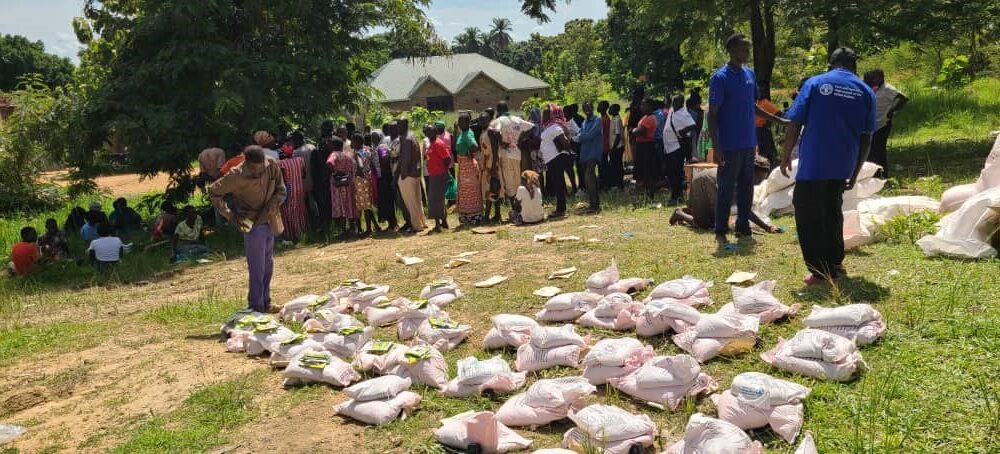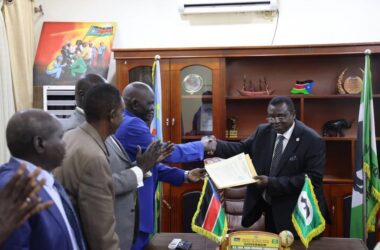By Kei Emmanuel Duku
A renewed sense of hope is sweeping across Kajo-Keji County as 5,000 smallholder farmers have received crucial agricultural inputs.
This timely intervention from the Food and Agriculture Organization (FAO) aims to bolster food security and revitalize food production in the county.
The distribution, which began yesterday, includes essential items like improved seeds and farming tools, arriving just as the planting season gains momentum.
Murye Alex, the County Agricultural Extension Officer, explained that while most farmers need inputs, the initial priority targets returnees and Internally Displaced Persons (IDPs) to help boost their agricultural activities.
The 5,000 farmers are set to benefit from the distribution of various agricultural inputs, including hoes, maize seedlings, cowpeas, and different types of vegetable seeds.
“It will boost the production and the productivity in Kajo-Keji County,” Alex stated. “And if it continues like this, I’m sure in two to three years, our farmers will get settled, and they will have enough food to eat and to sell.”
While the initiative, spearheaded by the County Agriculture Department in collaboration with FAO, targets vulnerable communities still recovering from years of displacement and conflict, many farmers in Kajo-Keji remain in dire need of farming inputs to rebuild their livelihoods.
Alex highlighted that some local organizations, such as ACROSS and Titi Foundation, which had previously supported farmers in the county, have recently ceased operations due to donor fatigue.
He also cited poor farming methods, inadequate post-harvest handling, and lack of market access as significant challenges facing Kajo-Keji farmers.
“There is a need for training so that the farmers can plan according to modern agriculture,” he explained. “Yes, farmers have been given the seeds, but there are things like training and value addition that need to be given to them in case they produce a lot.”
Access to markets remains a major hurdle. “Farmers are producing, but marketing becomes a problem in the county, simply because of access roads that connect the productive areas to the market,” Alex added. “So, if an organization can come and improve our access roads to the productive areas, it will help us.”
The Agricultural Extension Officer appealed to the national government to assist farmers in the county, especially as NGOs scale down their operations.
Kajo-Keji County, bordering Uganda, is renowned for its rich soils and favorable climate, historically making it a breadbasket for Central Equatoria.
However, years of instability led to widespread abandonment of farms and disrupted supply chains.
This latest injection of resources is a critical step toward restoring the county’s agricultural prominence and reducing its reliance on imported food.
Alfred Sokiri Elisa, one of the beneficiaries, expressed his gratitude for the timely intervention, acknowledging its profound impact on thousands of families, particularly those who have recently returned from refugee camps.
“I wish every season could be followed like this; we shall alleviate hunger in our County,” Sokiri remarked. “Not only in Kajo-Keji County but generally in Central Equatoria state and South Sudan at large.”
He also appealed for the timely delivery of agricultural inputs for the upcoming second planting season.
While challenges like unpredictable weather patterns and lingering security concerns persist, the provision of these agricultural inputs is a significant morale booster.
It represents a tangible commitment to supporting South Sudan’s farmers, laying the groundwork for a more generous harvest and a more food-secure future for the people of Kajo-Keji County.




